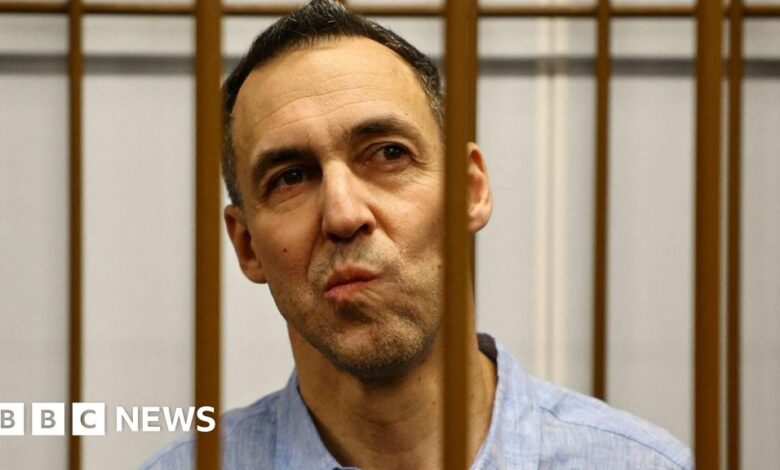Russia jails French researcher in ‘foreign spy’ case

A Moscow court has sentenced a French researcher to three years in prison for violating Russia’s controversial law on registering as a “foreign agent”.
Laurent Vinatier, who worked for a conflict mediation NGO based in Switzerland, was arrested in June while gathering what prosecutors said was information about the Russian military.
Speaking in the courtroom in Russian, Vinatier apologized and said he did not know he should have registered. The 48-year-old man, who had previously admitted his guilt, recited a poem by Russian poet Alexander Pushkin.
Vinatier’s defense team’s request for him to be fined rather than face prison was rejected by the presiding judge. The team said he will appeal.
France has not publicly commented on the Moscow court’s ruling. President Emmanuel Macron had previously requested Vinatier’s release.
On Monday, Judge Natalia Cheprasova at the Zamoskvoretsky district court in Moscow said: “The court has ruled that Vinatier is guilty and sentenced him to three years in prison on a general basis.”
State prosecutors had asked for a sentence of three years and three months in prison. They argued that information collected by Vinatier could have been used against Russia.
Speaking at the hearing, Vinatier apologized for his actions and said he loved Russia. Wearing a blue open-collar shirt and jeans, he did not show any emotion as the verdict against him was read.
He ended his comments by reading a poem by Pushkin – If life deceives you – about having to be patient in knowing that better days are ahead, AFP news agency reported.
After the court’s verdict, Vinatier’s defense lawyer Pavel Mamonov told reporters: “We think this sentence is too harsh and will definitely appeal.”
Vinatier worked for the NGO Center for Humanitarian Dialogue when he was arrested. The NGO said its main activity is “preventing and resolving armed conflicts worldwide through mediation and discreet diplomacy”.
Russia requires anyone receiving foreign support or foreign influence to declare themselves a foreign agent.
The Kremlin has taken advantage of the 2012 law to suppress all domestic opposition to President Vladimir Putin, and at the same time use it as an excuse to arrest people, including foreigners.
In the past, Russia has used foreign citizens detained in the country as bargaining chips to secure the release of its citizens arrested abroad.
In August, Russia released the United States, reported Evan Gershkovich, former U.S. Marine Paul Whelan and more than a dozen others in exchange for several Russian spies detained across the West.




